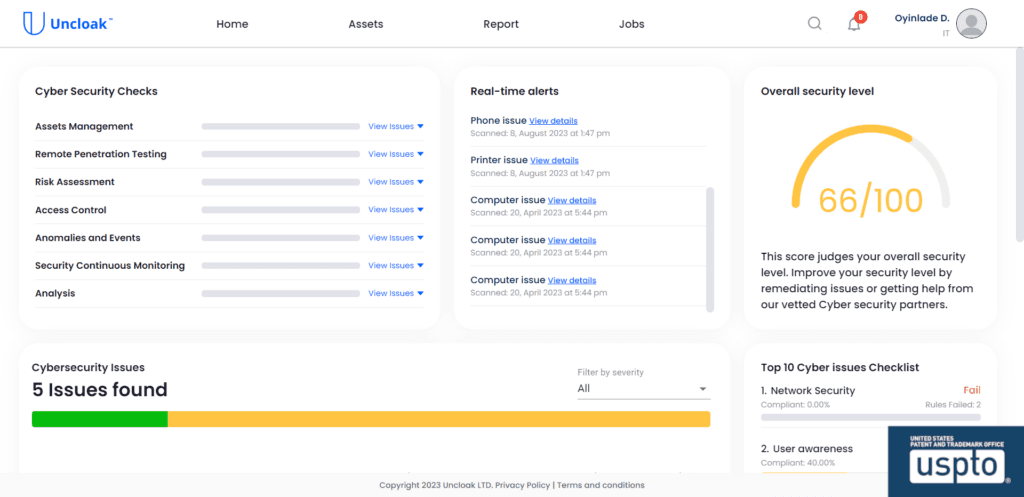Introduction
Cybersecurity is an essential part of any business in the modern digital world, and it is especially crucial for small businesses that are usually more vulnerable to cyber threats. It is the responsibility of the business owner or the management to manage security and ensure that the business is safe and secure from cyberattacks. In this blog post, we will provide a definitive guide to cybersecurity strategies for small businesses. We will cover the importance of cybersecurity for small businesses, how to manage security, and how to protect your business from cyber threats.
1. Understanding Cybersecurity for Small Businesses
The first step in understanding cybersecurity and its importance is to understand the types of cyber threats that small businesses face. Small businesses are vulnerable to cyberattacks that include hacking, phishing scams, malware, and ransomware attacks. These types of cyber threats can cause financial losses, loss of customer data and trust, and damage to the reputation of the business.
That is why cybersecurity should be a top priority for small businesses. Without proper cybersecurity measures in place, businesses are at risk of compromising sensitive data like financial information, customer information, and intellectual property. Failure to protect this data can lead to costly legal battles and a loss of business.
2. Managing Cyber Security
Cybersecurity management involves several steps. The first step is to develop a cyber security plan that outlines the policies and procedures that the company will implement to prevent cyber threats. This plan should include guidelines for protecting information and data, monitoring network security, addressing vulnerabilities, and responding in case of a breach.
The next step is to train employees on cybersecurity best practices. Employees are often the weakest link in cybersecurity, and training them on the importance of cybersecurity can go a long way in preventing cyber attacks. It is essential to train employees on how to recognize phishing scams, use strong passwords, and avoid clicking on suspicious links.
3. Seeking Consulting Cyber Security Firms
Small businesses may find it challenging to handle cybersecurity in-house, mainly because they do not have the resources to hire a dedicated cybersecurity team. That is where consulting cyber security firms come in. These firms specialize in providing cybersecurity services, including vulnerability assessments, network security, and data security.
It is crucial to select the right company for security consulting. Look for firms that specialize in cybersecurity for small businesses, have experience in your industry, and offer customized solutions that meet your specific needs. You should also consider their track record for providing cybersecurity services and feedback from other clients.
4. Cyber Essentials Plus
Cyber Essentials Plus is a certification scheme that is designed to provide basic cybersecurity controls for small businesses. It is a government-backed program that aims to help businesses protect themselves from cyber threats. To achieve certification, businesses must meet strict cybersecurity standards and undergo a series of tests to prove that they have adequate cybersecurity measures in place.
5. Cyber IT Security for Small Businesses
Finally, it is worth investing in Cyber IT Security, which involves adopting modern and up-to-date IT security measures. This includes the use of firewalls, antivirus software, intrusion prevention and detection systems, and other technologies that can help prevent cyber threats. While investing in IT security can be expensive, it is worth it in the long run as it can help prevent costly data breaches and compromises.
Conclusion
In conclusion, small businesses must take cybersecurity seriously to protect their sensitive data, financial information, and reputation. By understanding the importance of cybersecurity, developing a cybersecurity plan, training employees, seeking consulting cybersecurity firms, achieving Cyber Essentials Plus certification, and investing in Cyber IT Security, small businesses can minimize the risks of cyber threats. It is essential to prioritize cybersecurity and take proactive measures to prevent cyber attacks.

